Administrator
Before the official opening of the Berlin Executive Committee Meeting on Thursday 21st of June the Human Rights Committee of Liberal International was able to make a study visit to the Federal Commission for the Records of the State Security Service of the former GDR.
After travelling to the outskirts of former GDR East Berlin we arrived at an enormous complex of buildings in communist style.

Commissioner Roland Jahn and Markus Löning
In one of the thousands of office rooms we were welcomed by the Stasi Archives Commissioner Roland Jahn.

All particulars of citizens were kept in these cupboards and boxes
Markus Löning the Honorary Chairman of the LI Human Rights Committee explained who we were, and Commissioner Roland Jahn gave a very accurate and gruesome explanation of how nearly all East German citizens were registered and daily actions were secretly described and kept in the GDR State Security Service system.
[read more=”Read more” less=”Read less”]
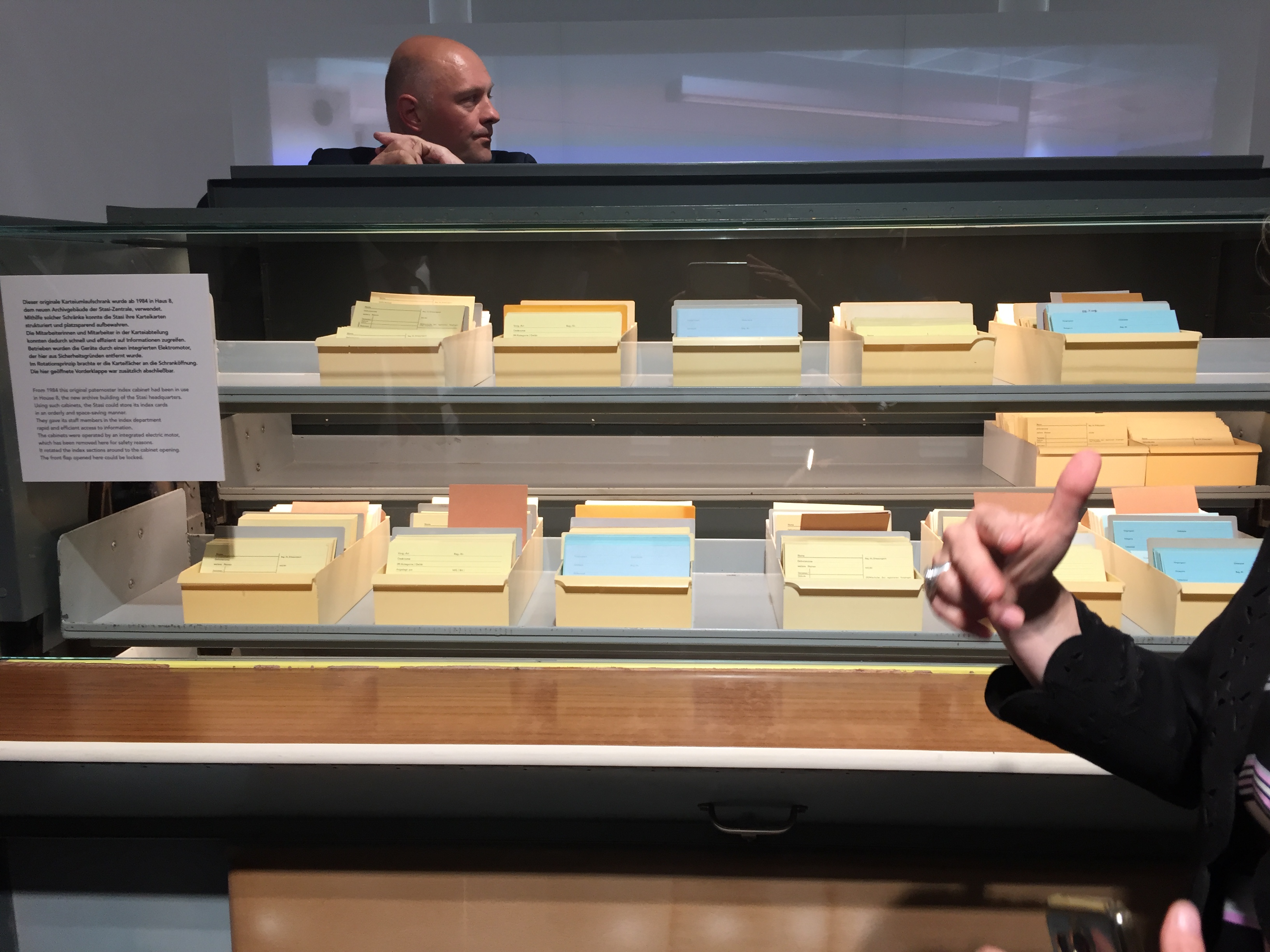
After the fall of the communist regime the people of GDR were shocked to realize and hear that so many of their neighbors, friends or family were spying on each other! Of course, there are no such records made up of citizens nowadays. The Commissioner and his office are now helping people to find out if they or their family members have been spied on in the GDR. And many still come to the Stasi Archives to see what was written about them and what is kept in the precisely administered Stasi Archives.
A frightening idea of how it must have felt to be a citizen in such a communist totalitarian system. Very good to realize how such a regime treated its citizens.
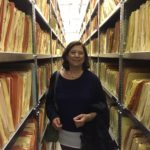 Roland Jahn took this photo of Margaret de Vos between thousands of historic files full of detailed descriptions of innocent citizens. Roland Jahn took this photo of Margaret de Vos between thousands of historic files full of detailed descriptions of innocent citizens. |
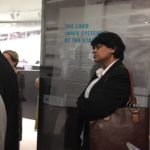 Jayanthi Balaguru listens contemplating the horrific way people were followed and treated in the German Democratic Republic! Jayanthi Balaguru listens contemplating the horrific way people were followed and treated in the German Democratic Republic! |
[/read]
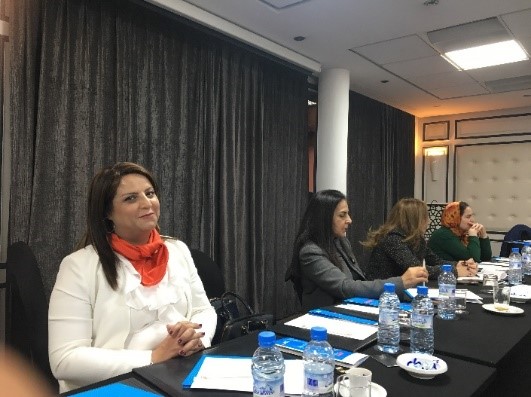 The International Network of Liberal Women- Chapter Morocco is a Network based on the very principles of liberalism; (Freedom, justice, equal citizenship and individual representation of the human being). Its approach reconciles essentially the individual with his environment in order to build a social peace, in accordance with the universally recognized principles in the field of human rights and the conventions signed and ratified by the Kingdom of Morocco.
The International Network of Liberal Women- Chapter Morocco is a Network based on the very principles of liberalism; (Freedom, justice, equal citizenship and individual representation of the human being). Its approach reconciles essentially the individual with his environment in order to build a social peace, in accordance with the universally recognized principles in the field of human rights and the conventions signed and ratified by the Kingdom of Morocco.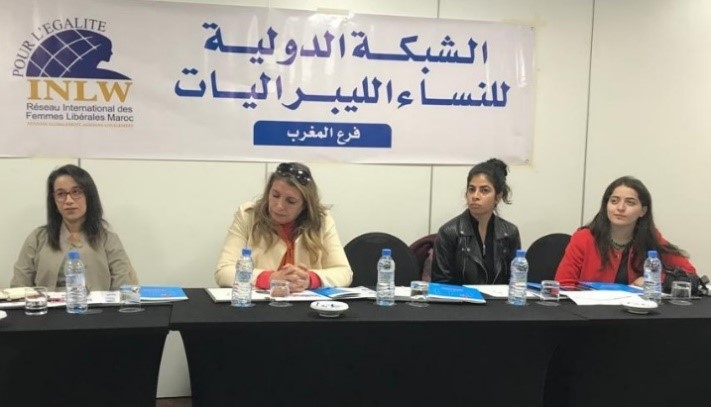
[read more=”Read more” less=”Read less”]
Agenda: A day of training on the values of liberalism and citizenship

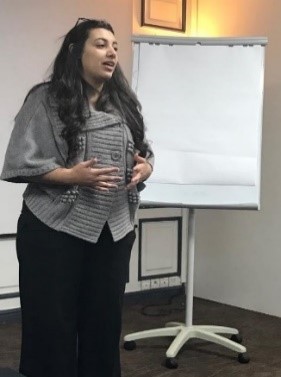 In the first place were defined the principles of liberalism in big letters which were then integrated into the identity and the specific values of the INLWMaroc network; and finally, an overall assessment of the session’s progress, with a conclusion from Madam Chairperson of the Network, Loubna Amhair and a note from Chaimae Bourjij, the program officer of the FNF FOUNDATION.
In the first place were defined the principles of liberalism in big letters which were then integrated into the identity and the specific values of the INLWMaroc network; and finally, an overall assessment of the session’s progress, with a conclusion from Madam Chairperson of the Network, Loubna Amhair and a note from Chaimae Bourjij, the program officer of the FNF FOUNDATION.
• definition of the liberal values and principles,
• The history of the emergence of liberal thought and its foundations,
• Definition of the social roles that Moroccan liberal women can play;
• Definition of the legal and social status of a Citizen;
• Provide women members of the INLWM Network with a working platform to unify their vision and messages;
• Promote the best methods for more effective actions;
• Create an identification to define common goals;
• Better understand the dynamics of the group to reinforce the cohesion and reinforcement of the Network.
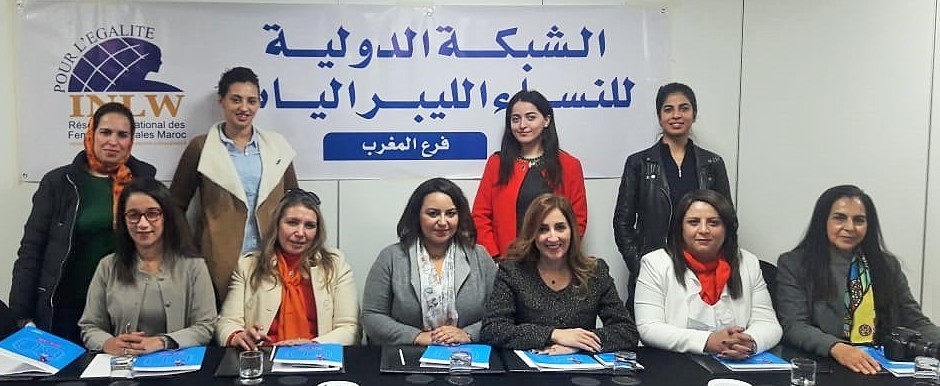
Short biography of the trainer
Abdelali Mastour, is the president of the FORUM DE CITOYENNETE (FC).
Abdelali Mastour is a professor at the Higher Institute of Journalism and Information in Casablanca. Member of several committees as the Euro-Mediterranean Foundation of Support for Human Rights Defenders (EMFHR).

[/read]
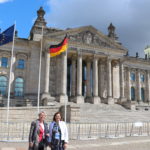
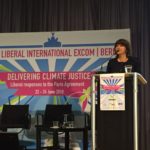 The Committee meeting gave us many discussions about climate change. What is the Liberal response to the Paris Agreement of Delivering Climate justice? The INLW former deputy -president Hakima El Haiti gave an inspiring speech about the importance of climate change and the effects for people all over the world.
The Committee meeting gave us many discussions about climate change. What is the Liberal response to the Paris Agreement of Delivering Climate justice? The INLW former deputy -president Hakima El Haiti gave an inspiring speech about the importance of climate change and the effects for people all over the world.
Climate change touches everyone and it has a lot of influence on the economy. Certainly, when parts of the world sustain severe periods of drought. Many countries especially in Africa have a lack of means if they get drought and thus no crop. Young women are very vulnerable for these effects. Often, they can no longer go to school because all must work and help to get water from elsewhere. These climate problems make people want to migrate. These problems must be solved. In 2015 the world agreed on acting on this problem. The sustainable agenda and the Paris agreement were agreed on by nearly all countries.
[read more=”Read more” less=”Read less”]
 The change is foremost a mindset problem. More education is one of the important issues. Politicians cannot do this alone, they must work together and make green investments and adjust education to make people more aware of these developments. Governments, political parties and the UN must make this change together. Climate change and human rights, peace and security are all linked. Although the USA is not agreeable to this issue, we do still see that some of the states such as California are agreeing to the Paris Agreement and working on it.
The change is foremost a mindset problem. More education is one of the important issues. Politicians cannot do this alone, they must work together and make green investments and adjust education to make people more aware of these developments. Governments, political parties and the UN must make this change together. Climate change and human rights, peace and security are all linked. Although the USA is not agreeable to this issue, we do still see that some of the states such as California are agreeing to the Paris Agreement and working on it.
Europe must work on it not only because it is so important for the next generation but also Europe doesn’t want all the migration coming its way so education, health care and transport must be worked on in the migration countries. For the politicians the problem is that some, mostly populists, go on saying that there is no climate change as for example president Trump says. Another problem with the populist movements is that everyone wants to be heard and needs results. Populists are using that in their attitude to the electorate. So, politicians must have enough evidence and solid explanations must be given to change political attitudes. Climate change and the attitude to this is all about equality for the world at large and thus climate justice for all.
Another interesting meeting was about Democracy.
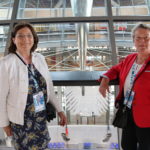

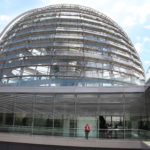 The statement was that democracy is a process. This process can be stopped. Despite the many attacks on democracy Europe is still going and as former president Obama said: The Europe Union is successful and still there after 70 years. An intergovernmental issue is migration. Many populists are choosing nationalism as the best solution for any problem. They tend to say that they want change and are anti-establishment but, they want to establish their own establishment. We must show that the Europe Union is still a very good and solid partnership. We are stronger together and now you can see that leaving the EU is not so easy and will give many economic and other problems. With all the European countries we must go on fighting for freedom, prosperity and a good balance between human rights and responsibility. Europe is a part of the world with many possibilities: good laws, social inclusion, freedom of speech and the possibilities to make your own choices. We must go on fighting for: human rights, freedom and rule of law all over the world.
The statement was that democracy is a process. This process can be stopped. Despite the many attacks on democracy Europe is still going and as former president Obama said: The Europe Union is successful and still there after 70 years. An intergovernmental issue is migration. Many populists are choosing nationalism as the best solution for any problem. They tend to say that they want change and are anti-establishment but, they want to establish their own establishment. We must show that the Europe Union is still a very good and solid partnership. We are stronger together and now you can see that leaving the EU is not so easy and will give many economic and other problems. With all the European countries we must go on fighting for freedom, prosperity and a good balance between human rights and responsibility. Europe is a part of the world with many possibilities: good laws, social inclusion, freedom of speech and the possibilities to make your own choices. We must go on fighting for: human rights, freedom and rule of law all over the world.
Of course, there were some nice visits to make as well.
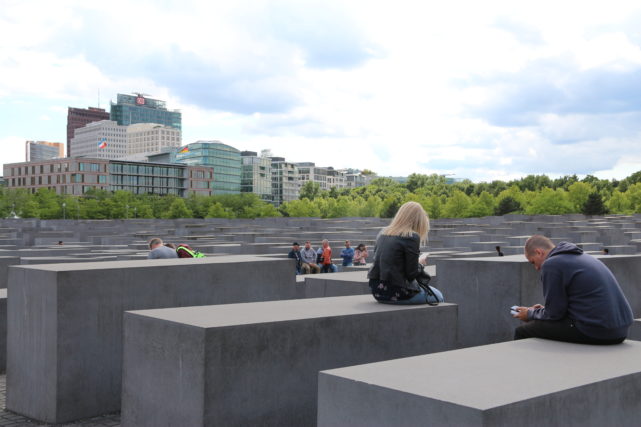 |
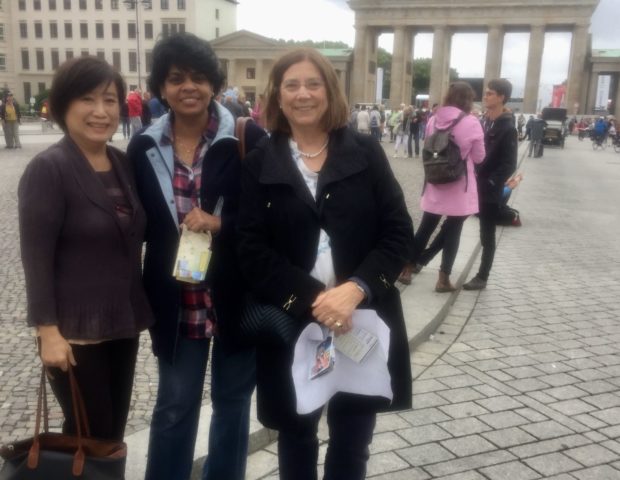 |
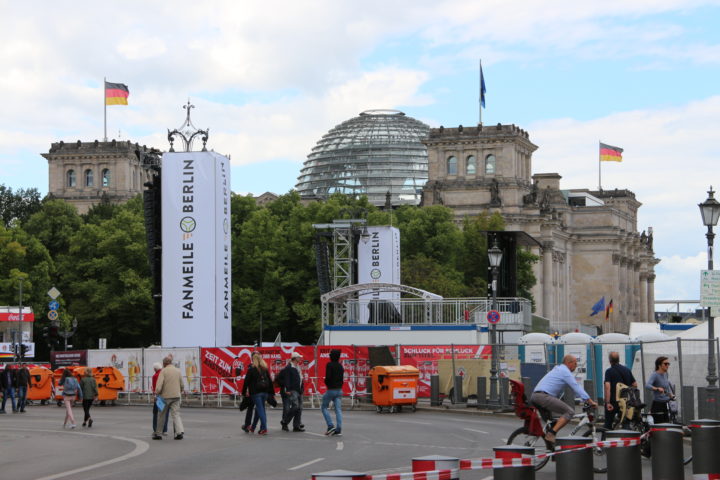 |

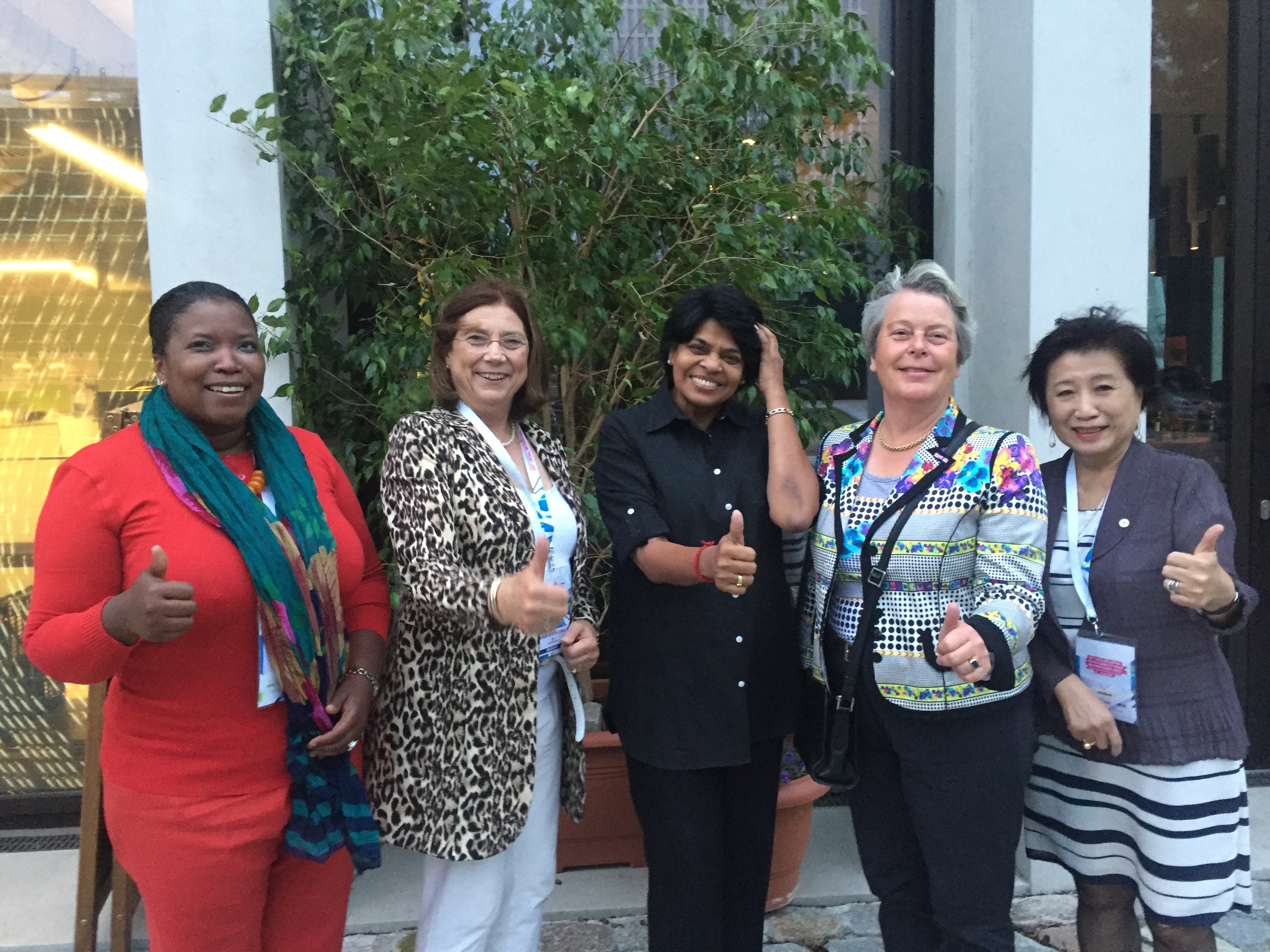 Members of INLW Board: Ruth Richardson, Margaret de Vos, Jayanhti Devi Balaguru, Lysbeth van Valkenburg and Maysing Yang were all present in Berlin.
Members of INLW Board: Ruth Richardson, Margaret de Vos, Jayanhti Devi Balaguru, Lysbeth van Valkenburg and Maysing Yang were all present in Berlin.
[/read]
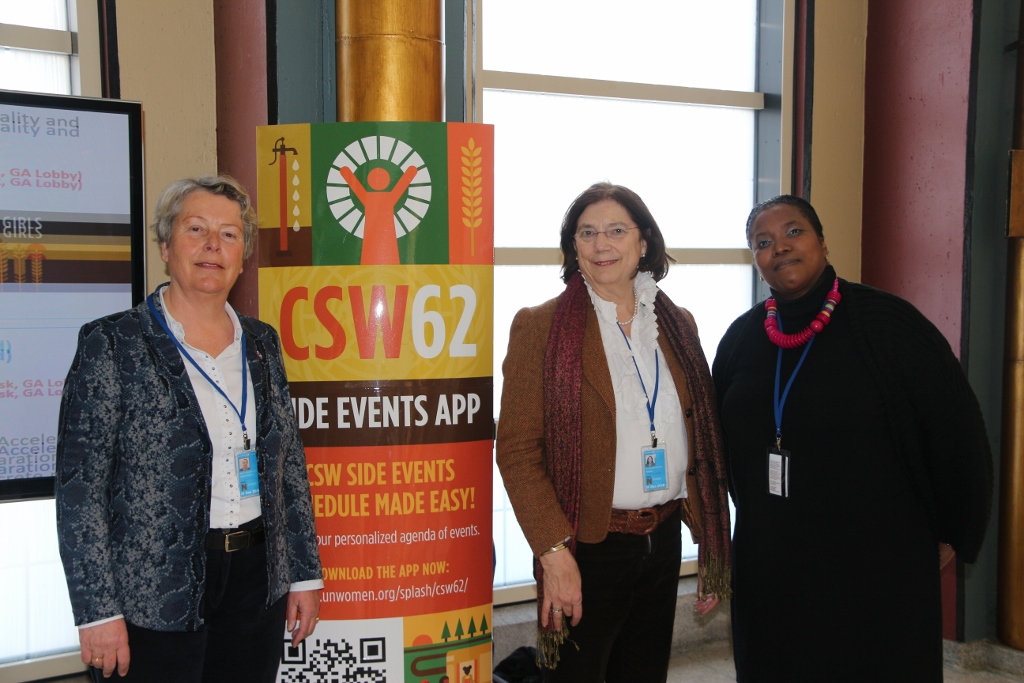 This year the UN CSW was set with the title “Challenges and opportunities in achieving gender equality and the empowerment of rural women and girls”.
This year the UN CSW was set with the title “Challenges and opportunities in achieving gender equality and the empowerment of rural women and girls”.
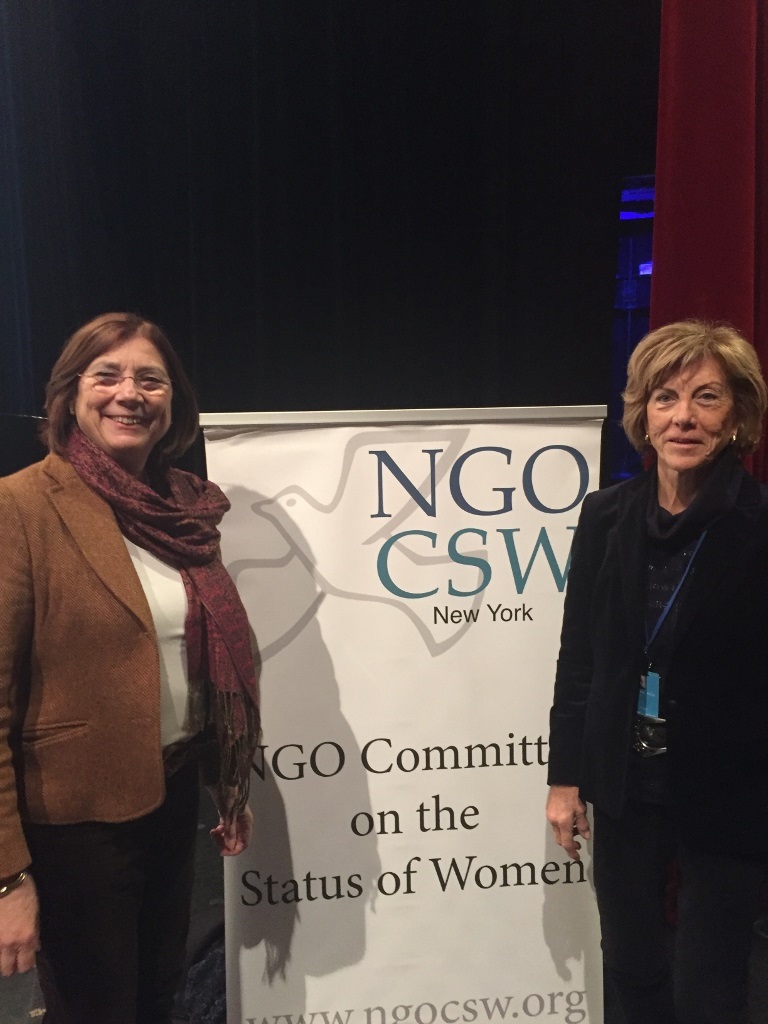 Several members of our INLW board were present. Margaret de Vos, Lysbeth van Valkenburg and Ruth Richardson were present during the opening ceremony, as well as Joaquima Alemany.
Several members of our INLW board were present. Margaret de Vos, Lysbeth van Valkenburg and Ruth Richardson were present during the opening ceremony, as well as Joaquima Alemany.
The new Chair, Ms Geraldine Byrne Nason (from Ireland) opened the 62nd CSW. She stated: “I am proud to be here in St Patrick’s week. We must promote the instruments to help girls in rural areas. I know from my own home country, Ireland, that especially women and girls can help build peace and help development in the rural parts. Girls and women must come to the decision-making table, we must leave no one behind and work on this for 2020!”. A quote from Irish Murdoch: “I think being a woman is being Irish, you are nice but second place”.
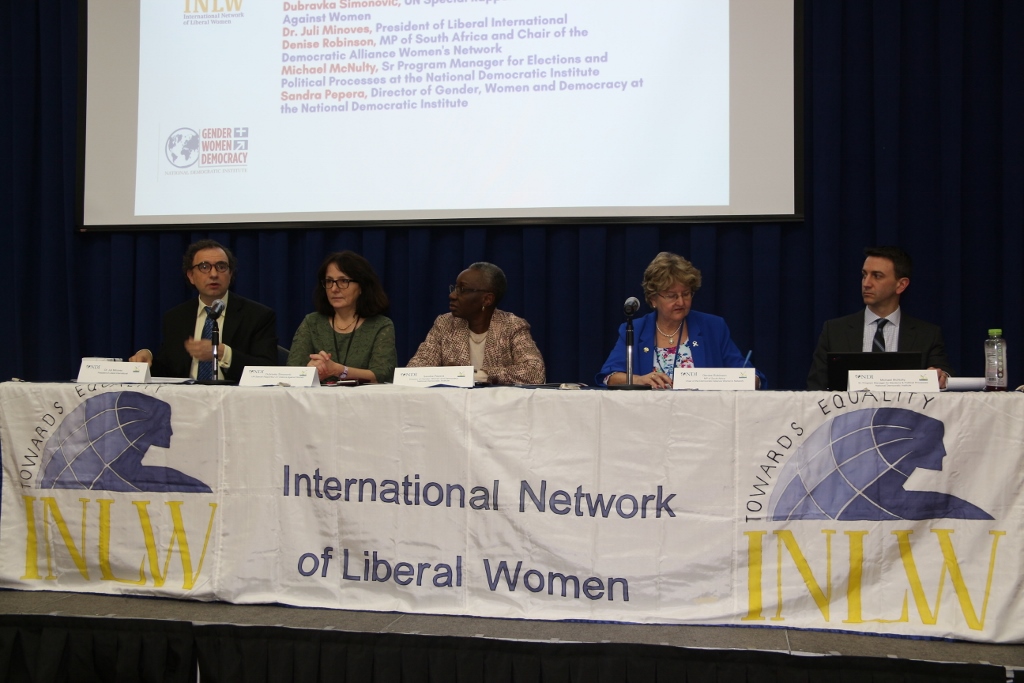 Liberal International, the National Democratic Institute and INLW organized an event about: Pushing Back, strategies for combatting violence against women in Politics.
Liberal International, the National Democratic Institute and INLW organized an event about: Pushing Back, strategies for combatting violence against women in Politics.
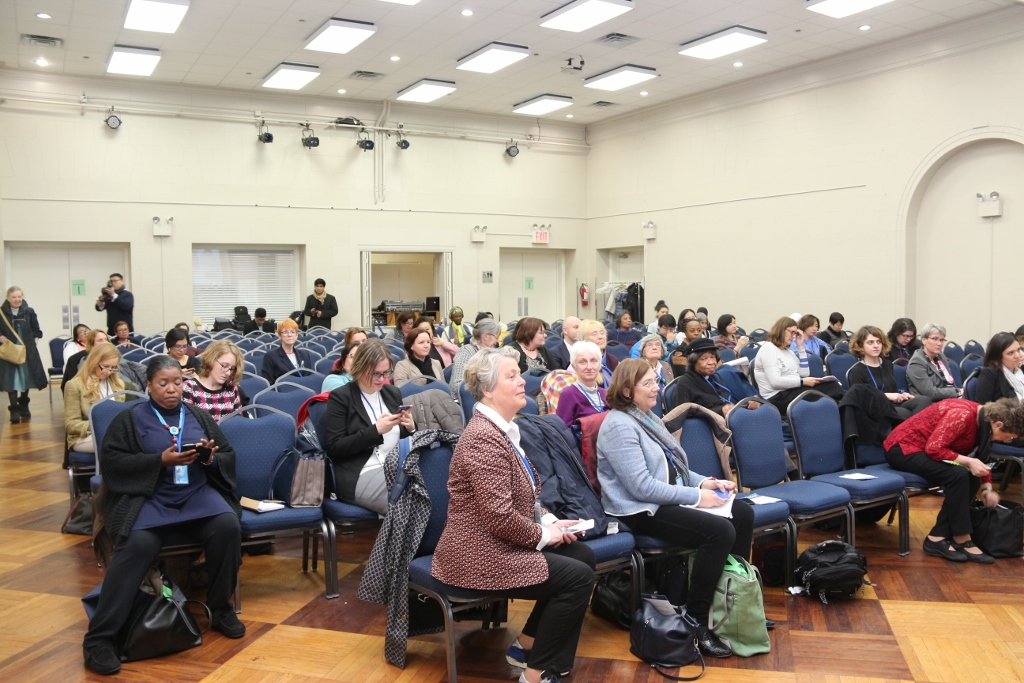 Teaming up with Madeleine Albright’s National Democratic Institute (NDI), LI and INLW asked NDI, for the occasion of two-year anniversary of the #NotTheCost campaign to end violence against women in politics, to organize a side-event on the fringes of the 62nd Session of the United Nations Commission on the Status of Women (UNCSW) in New York, raising the profile of this global cause.
Teaming up with Madeleine Albright’s National Democratic Institute (NDI), LI and INLW asked NDI, for the occasion of two-year anniversary of the #NotTheCost campaign to end violence against women in politics, to organize a side-event on the fringes of the 62nd Session of the United Nations Commission on the Status of Women (UNCSW) in New York, raising the profile of this global cause.
Under the theme Pushing Back: Strategies for Ending Violence against Women in Politics (VAW-P) and in partnership with the International Network of Liberal Women (INLW), the event aimed to showcase best practice solutions by exploring lessons learned from around the world and providing participants with tested tools to push back on violence against women in politics both preemptively and proactively.
[read more=”Read more” less=”Read less”]
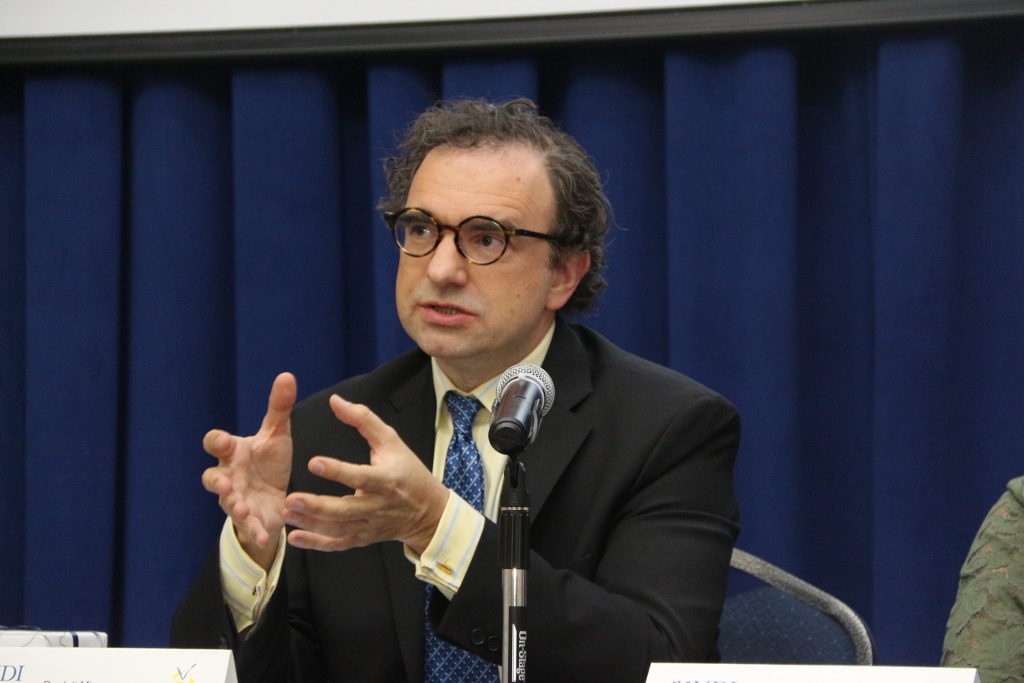 Addressing more than 100 delegates, LI President Dr Juli Minoves insisted that the abuse women in politics suffer is not only physical or sexual but psychological and liberals in government and opposition around the world are leading the efforts to offer solutions and strategies to end gender-based violence, especially violence against women in politics. “Something that happens with Violence Against Women-Politicians is that there is very little self-acknowledgement that this is happening in society and that it goes much beyond physical violence, the internet abuse is getting more and more intense” he said.
Addressing more than 100 delegates, LI President Dr Juli Minoves insisted that the abuse women in politics suffer is not only physical or sexual but psychological and liberals in government and opposition around the world are leading the efforts to offer solutions and strategies to end gender-based violence, especially violence against women in politics. “Something that happens with Violence Against Women-Politicians is that there is very little self-acknowledgement that this is happening in society and that it goes much beyond physical violence, the internet abuse is getting more and more intense” he said.
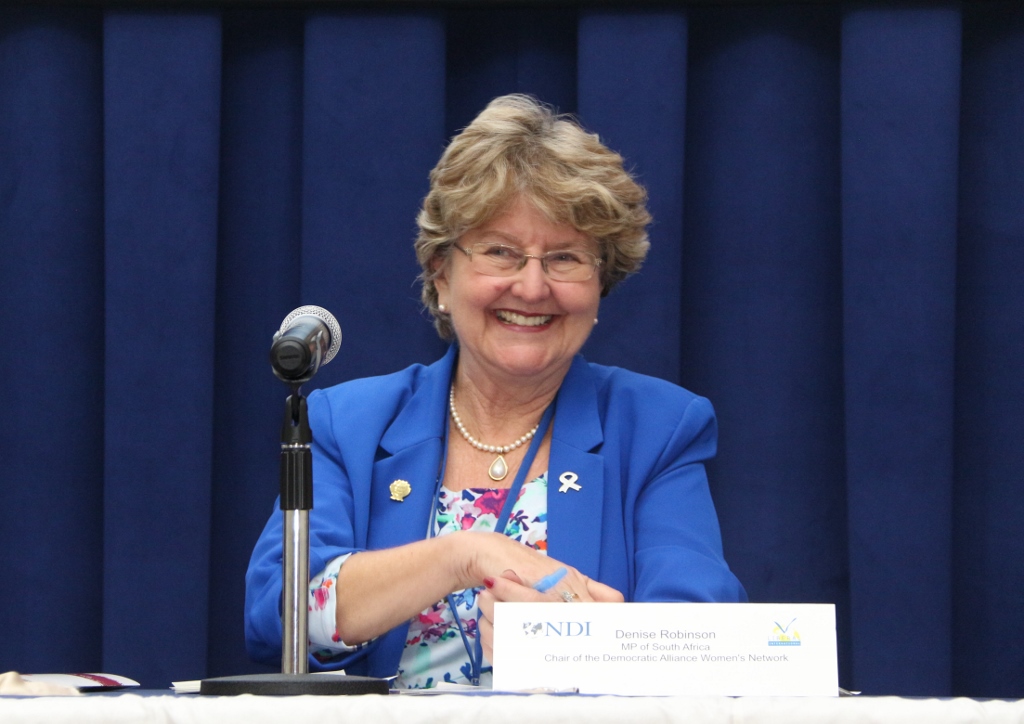 Speaking on behalf of INLW, Democratic Alliance Member of Parliament Denise Robinson, emphasized that “stronger legislation needs to go hand in hand with stronger implementation and monitoring when it comes to ending violence against women including violence against politically active women.” Even within liberal parties this attitude occurs and must be addressed.
Speaking on behalf of INLW, Democratic Alliance Member of Parliament Denise Robinson, emphasized that “stronger legislation needs to go hand in hand with stronger implementation and monitoring when it comes to ending violence against women including violence against politically active women.” Even within liberal parties this attitude occurs and must be addressed.
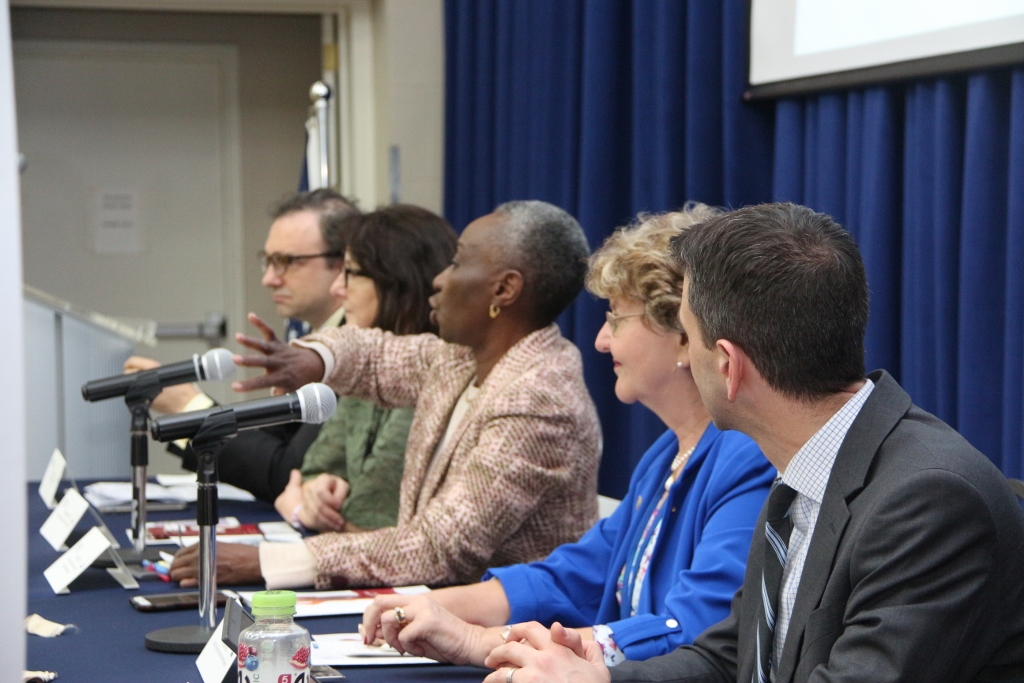 The panel was moderated by NDI’s director for Gender, Women and Democracy, Sandra Pepera and featured United Nations Special Rapporteur on Violence against Women Ms. Dubravka Šimonović, and NDI Senior Program Manager (Elections and Political Processes), Michael McNulty.
The panel was moderated by NDI’s director for Gender, Women and Democracy, Sandra Pepera and featured United Nations Special Rapporteur on Violence against Women Ms. Dubravka Šimonović, and NDI Senior Program Manager (Elections and Political Processes), Michael McNulty.
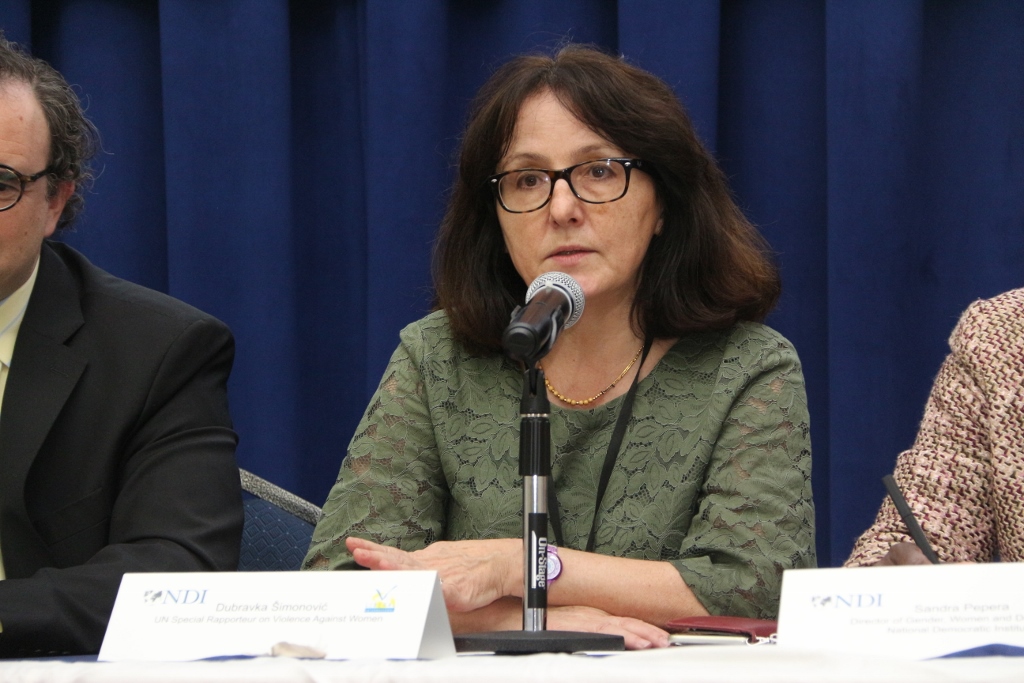 Liberal International has been at the forefront of the issue. Most recently, LI HRC Member Marina Schuster (FDP) participated in a closed expert hearing meeting with H.E. Dubravka Simonovic where she highlighted efforts of liberals in government and opposition to support women in politics and end all forms of discrimination and abuse against politically active women.
Liberal International has been at the forefront of the issue. Most recently, LI HRC Member Marina Schuster (FDP) participated in a closed expert hearing meeting with H.E. Dubravka Simonovic where she highlighted efforts of liberals in government and opposition to support women in politics and end all forms of discrimination and abuse against politically active women.
Special rapporteur Dubravka Simonovic is compiling an important report on the situation in the world concerning violence against women involved in politics. INLW is encouraging its members to file their own experiences and send this via NDI to the Special Rapporteur. This fall the report will be presented at the UN.
For information on how to file your experiences for the Rapporteur, you can contact inlw@inlw.org
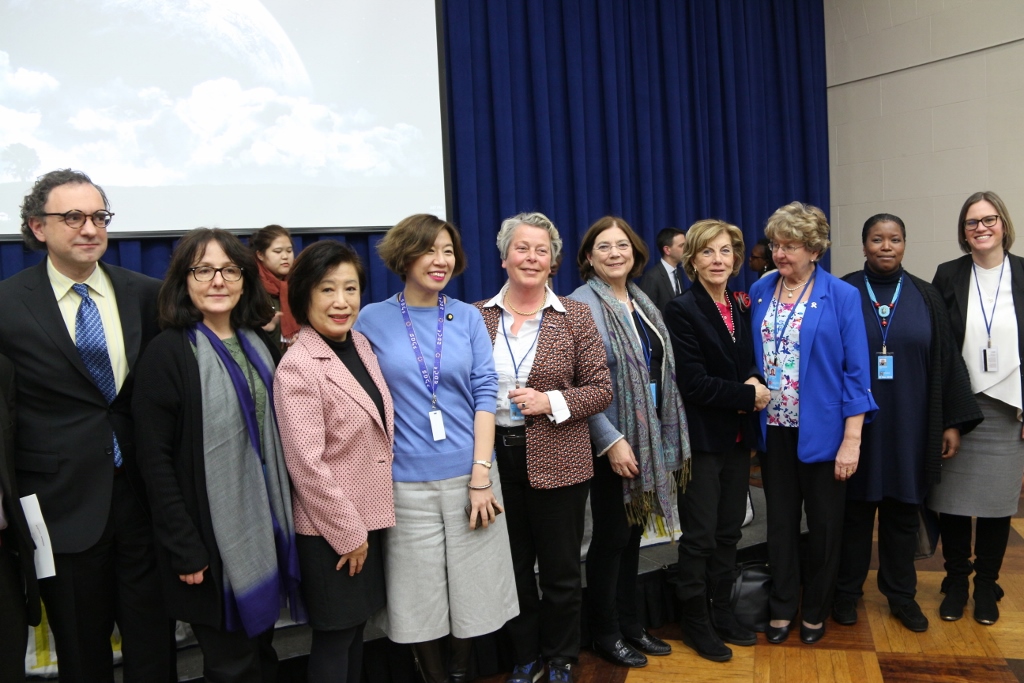
The conclusion of all the participants on the panel was, that there is still a lot of important work all around the world needed, to change the attitude towards women in politics.
[/read]
On Wednesday March 14th, 2018 at 10.30 am Margaret de Vos van Steenwijk president of INLW, was invited to deliver a speech at the Parallel Event at CSW62. This Parallel Event was sponsored by “The Urban Diversity and Mobility Research Center of Taiwan (UDM)”. She was asked to give her opinion and ideas about “Women’s political participation” in the future.
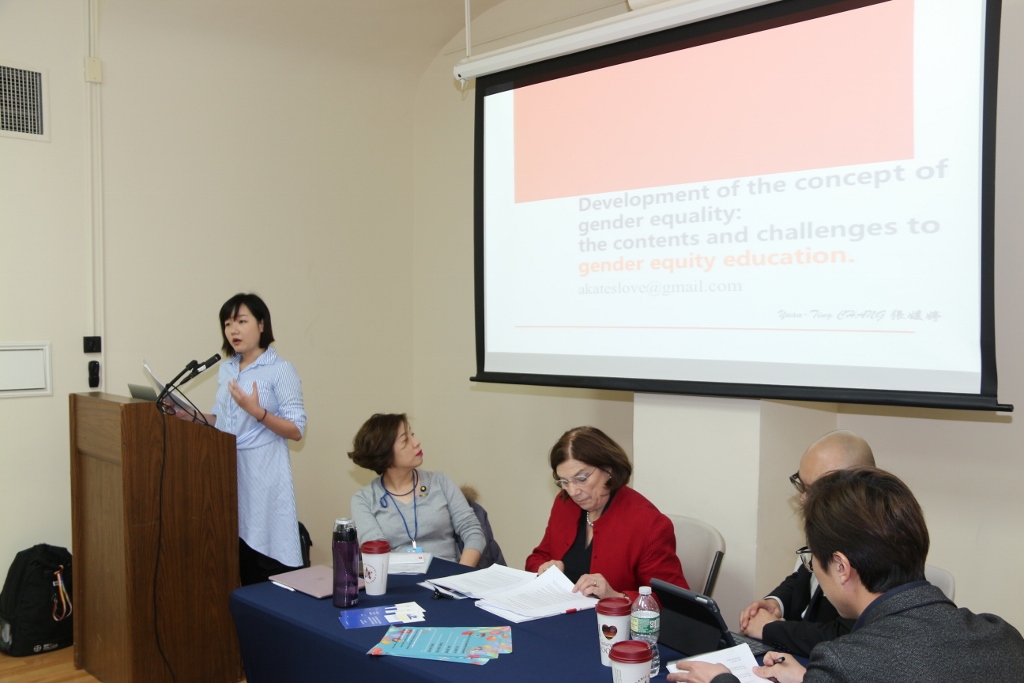 Other speakers were the Member of Parliament Mrs. Lin Ching-Yi who spoke of the situation in Taiwan for women. Also, Mr Shih, Mu-Min Ph.D. candidate University of Department of Asian Studies, Texas at Austin spoke of the gender progressiveness but very much with the eyes on the past. Gender is a word that does not exist in Taiwanese and so very often sex is put in its place which has a different meaning that is often overlooked in the policy papers and and discussions.
Other speakers were the Member of Parliament Mrs. Lin Ching-Yi who spoke of the situation in Taiwan for women. Also, Mr Shih, Mu-Min Ph.D. candidate University of Department of Asian Studies, Texas at Austin spoke of the gender progressiveness but very much with the eyes on the past. Gender is a word that does not exist in Taiwanese and so very often sex is put in its place which has a different meaning that is often overlooked in the policy papers and and discussions.
“How women make Cities smarter? Education, Empowerment and Policies. Through the improvement of education and more political participation of women we can see a change. Now there are 38% women in parliaments all over the world. Locally we find even more women in city councils and as aldermen. The females are more supportive of points such as gender equality and the endorsement of it. The gender equality is now integrated in the curriculum of health and physical education. Many school text books must be changed so that the existing gender stereotyping is taken out. They should for instance be illustrated in a gender equality friendly fashion.
[read more=”Read more” less=”Read less”]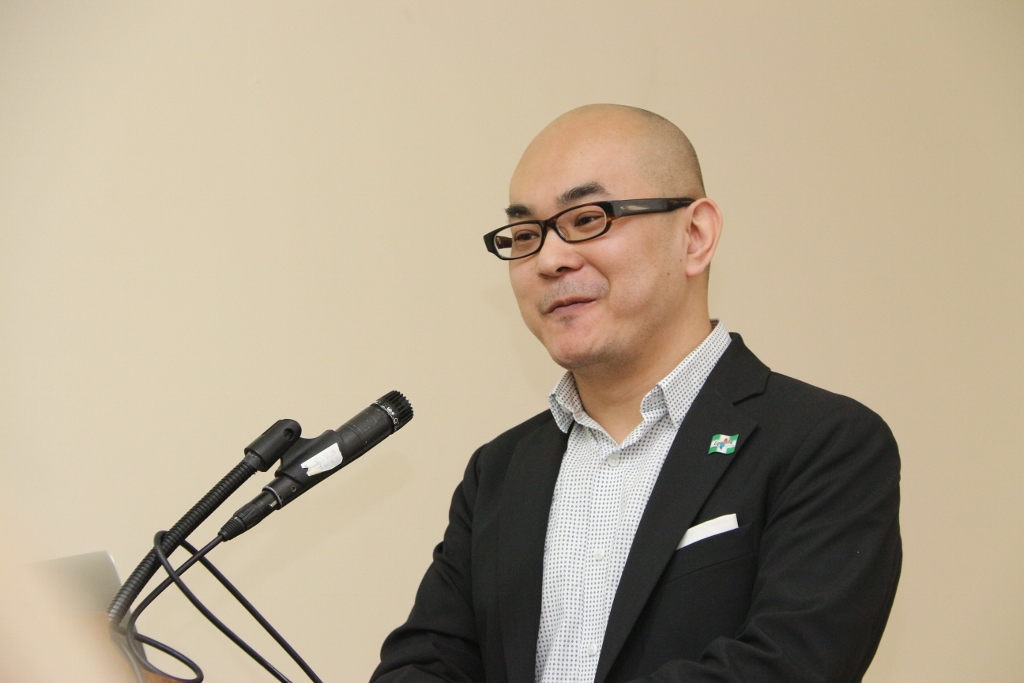
Mrs Chang, Yuan-Ting, Alternate Director, Urban Diversity and Mobility Research Center and Mr Chen, Chih-Wei who resides in London from the UN Sustainable Development Goals Advisory Council of Taiwan also spoke briefly. He was emphasizing connecting people and stressed the importance of conversation between men and women.
In Taiwan although many girls do get educated there is still the notion of Motherhood which prevails, and which monopolizes Femininity. 1988 the Gender equality was introduced in education.
Confucianism is still in the minds of Taiwanese people whereby women should be mothers and should not give that task to immigrant women. There is a prejudice towards immigrant women.
Margaret de Vos spoke of the importance of empowering women to participate in politics and economy. Without their participation we can’t build a sustainable world and sustainable cities. More than half the population in every country is female. It is important to use this latent working force and intellect. She gave answers to questions such as `What reasons are there to empower women to take part. What do you miss if they don’t participate`.
First, no person may be excluded the right to represent the people. Socially inclined reasons for diversity in political bodies are that the people should recognize themselves in those representing them in democratic bodies. It is not only important to have men and women, but also for instance ethnical diversity is important, so that people FEEL they are represented.
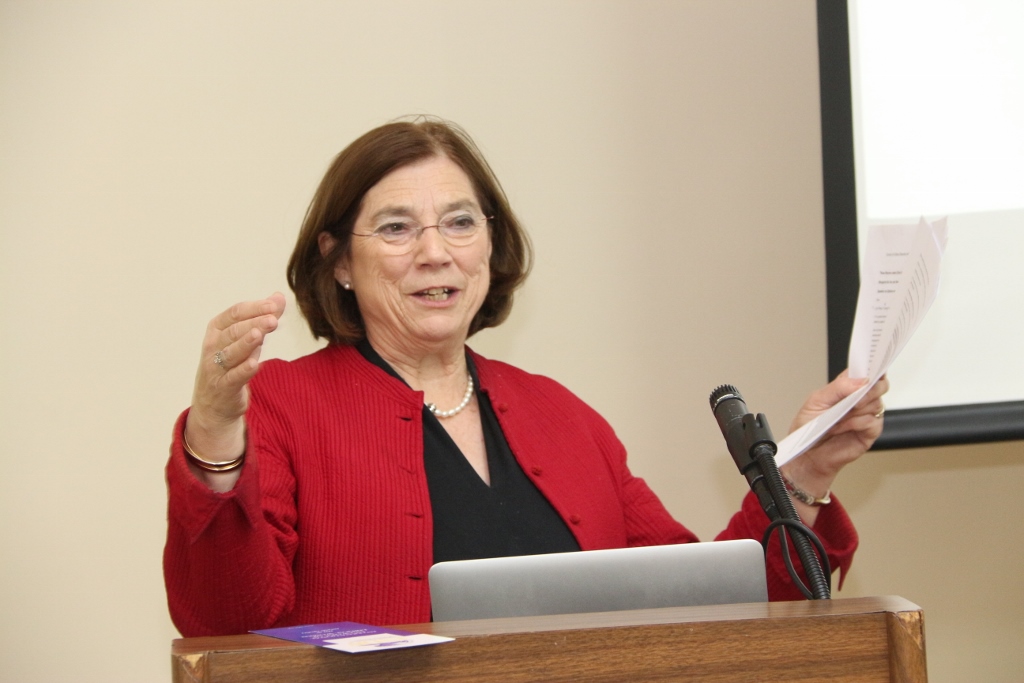 Second a more diverse parliament or government will address more of the concerns that apply especially to women. Diversely composed town councils and parliaments also know better what is going on in society. And likewise, the political agenda will reflect the questions which civil society finds important. SO, it often takes women to bring changes into legislation in favor of women and society. Political representation by women is also important to get rid of obstacles there are to get women elected. Also, for the knowledge they bring along in relation to themes which concern especially women or related to emancipation themes. Changes are necessary, but this means that if you want changes made you better change those who take the decisions as well. There is a critical mass needed to be able to make a difference and a change and that is 30 %.
Second a more diverse parliament or government will address more of the concerns that apply especially to women. Diversely composed town councils and parliaments also know better what is going on in society. And likewise, the political agenda will reflect the questions which civil society finds important. SO, it often takes women to bring changes into legislation in favor of women and society. Political representation by women is also important to get rid of obstacles there are to get women elected. Also, for the knowledge they bring along in relation to themes which concern especially women or related to emancipation themes. Changes are necessary, but this means that if you want changes made you better change those who take the decisions as well. There is a critical mass needed to be able to make a difference and a change and that is 30 %.
Mrs. De Vos also raised the question if political parties do better if they have women on the ballot list. She called upon this to be researched.
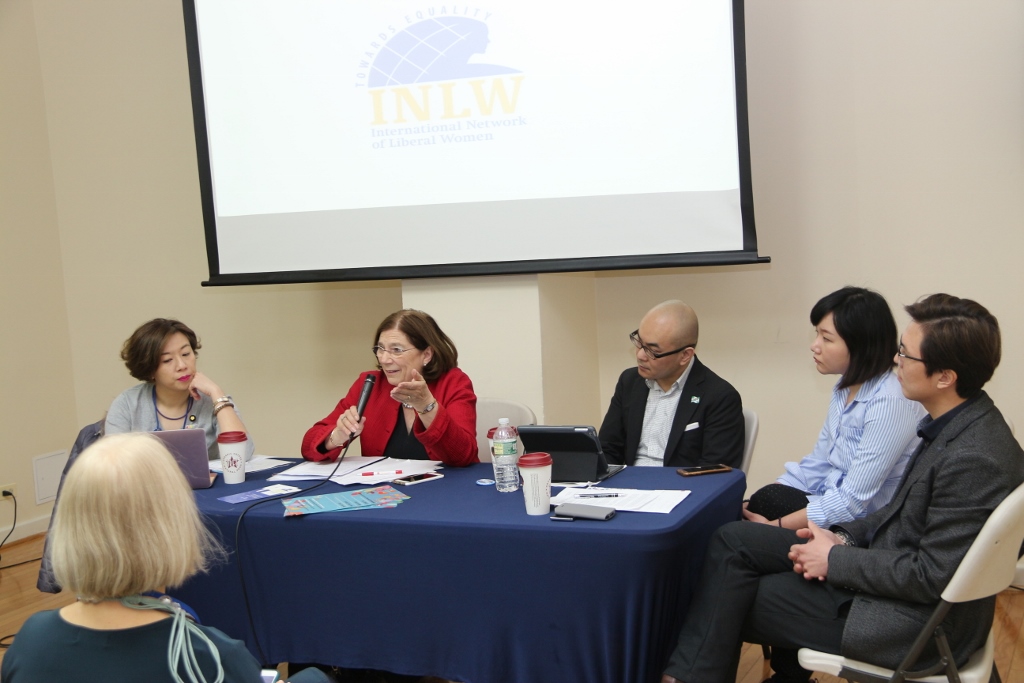 Have more working women changed cities? Active women in cities has changed the way of life in many cities. Just look at the burst of new restaurants in towns, where couples eat out very much more than in the past where the women were always at home preparing and cooking the meals. Empowerment of women and diversity in decision making is important to use all available talent.
Have more working women changed cities? Active women in cities has changed the way of life in many cities. Just look at the burst of new restaurants in towns, where couples eat out very much more than in the past where the women were always at home preparing and cooking the meals. Empowerment of women and diversity in decision making is important to use all available talent.
Albert Einstein: “The significant problems we face today cannot be solved by the same level of thinking that created them”. She mentioned that the brain architecture of men and women is different: Women think in web style and men in step thinking. Women considering more options to a problem and men, in general of course, thinking more via a linear causal path. Other positive traits can be intuition, mental flexibility, long term planning, creativity and keen imagination as well as other views on power. Working towards better decisions, while showing more patience, more listening qualities and showing more empathy, women tend to show a different kind of leadership. With all these positive reasons why are Women still not so empowered?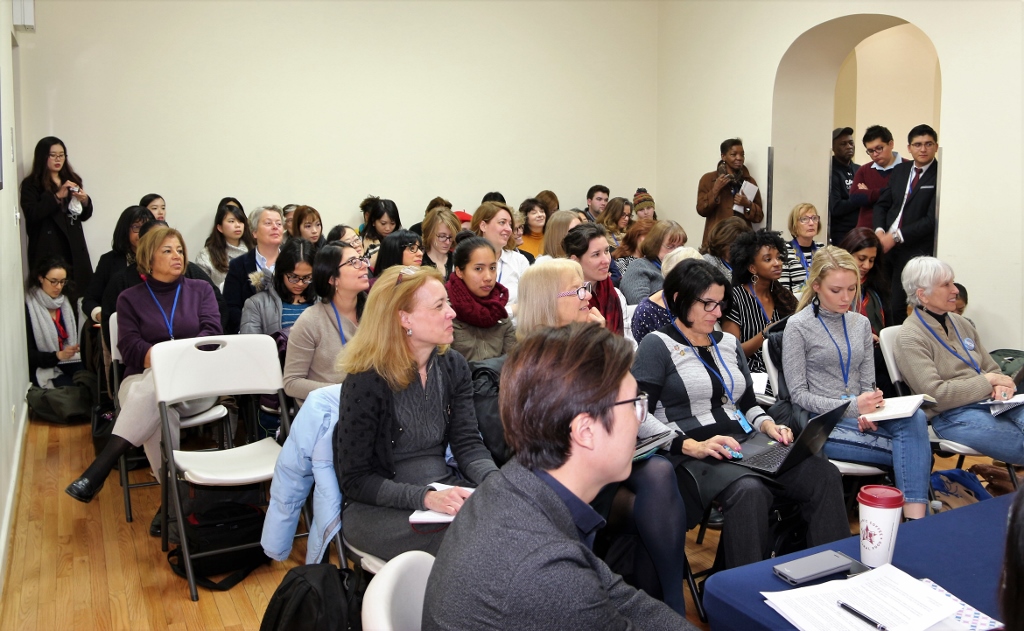
Mrs. De Vos went on to explain that women often wait to be asked or are triggered only after being encouraged. There is a social, political and practical necessity to have women on board in representative bodies like Town Councils and Parliament. How to get more women there? Get them over their modesty, teach them to present themselves with more confidence, while learning to exaggerate a little at least. Build up a network and within political parties learn to ignore any biased comments and use the competitive atmosphere for your own good.
Get to share the tasks in the household with the partner to be able to take on the extra work. And make sure you get women and especially also men to promote your candidacy. Go for it with a personal campaign. Think as party that 50% of the voters are women. So, widen the campaign with slogans and media presentation on subjects that appeal to women and present good solutions for these topics. Parties must give exposure to the women candidates! With the female vote one can win 50% of the voters! In Mrs. De Vos ’s experience in the Netherlands there are many women who only vote for women. So, you better have women on your lists!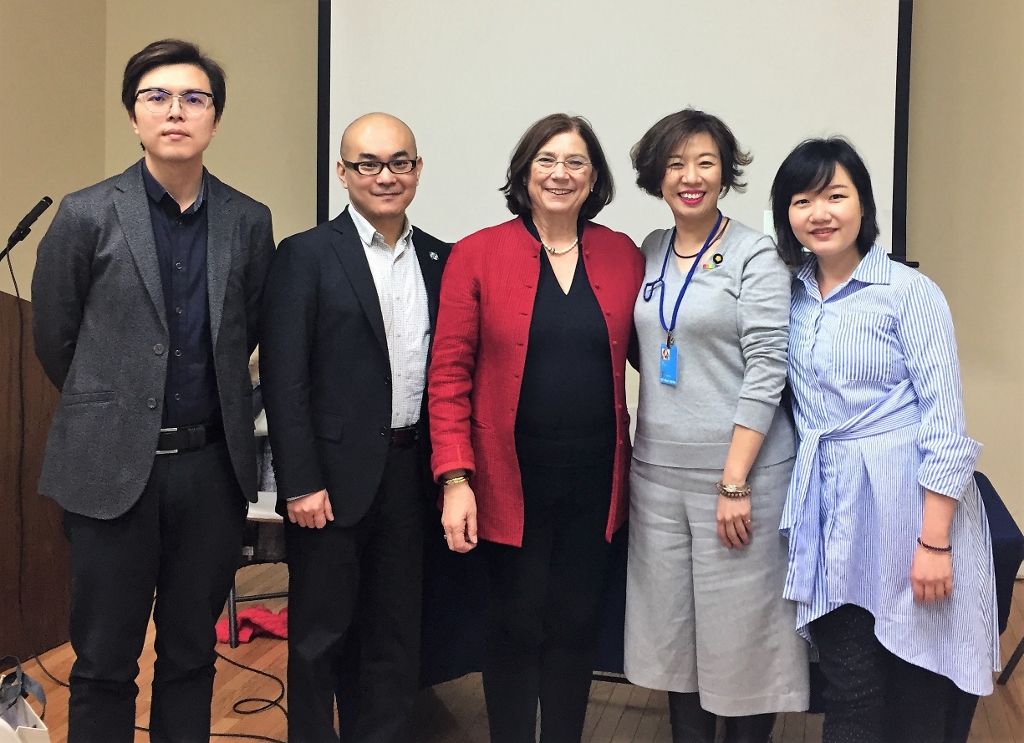
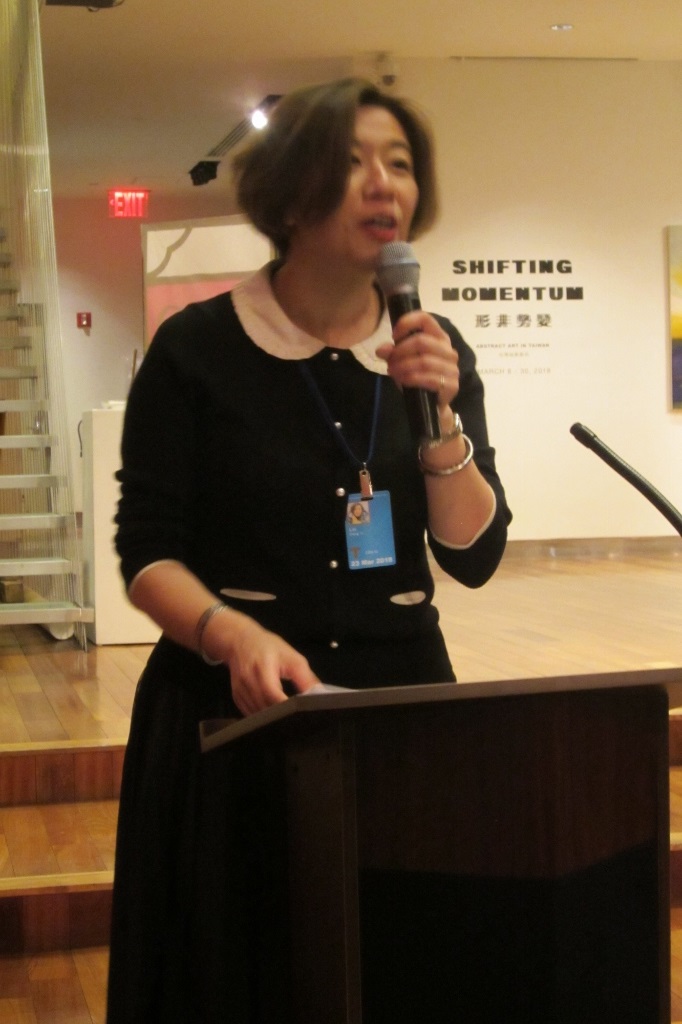 She concluded: “We must use all capacities, talents, creativity and knowledge of half of the population. Women then become more engaged in public decision making and it is a means of ensuring better accountability to women and making more and better decisions which will be beneficial for the country and towns! Diversity and empowerment of women is a question of common sense! The message is that Democracy without women is incomplete. Women’s adequate political participation is a fundamental prerequisite for gender equality and genuine democracy. Without the representation of women there is no Democracy”. Before the time was up a few questions were able to be asked, resulting is a discussion on whether women should help each other more instead of sometimes showing actions of jealousy and where Margaret found her information. The answer was: yes women should be more supportive of each other and promote each other more!
She concluded: “We must use all capacities, talents, creativity and knowledge of half of the population. Women then become more engaged in public decision making and it is a means of ensuring better accountability to women and making more and better decisions which will be beneficial for the country and towns! Diversity and empowerment of women is a question of common sense! The message is that Democracy without women is incomplete. Women’s adequate political participation is a fundamental prerequisite for gender equality and genuine democracy. Without the representation of women there is no Democracy”. Before the time was up a few questions were able to be asked, resulting is a discussion on whether women should help each other more instead of sometimes showing actions of jealousy and where Margaret found her information. The answer was: yes women should be more supportive of each other and promote each other more!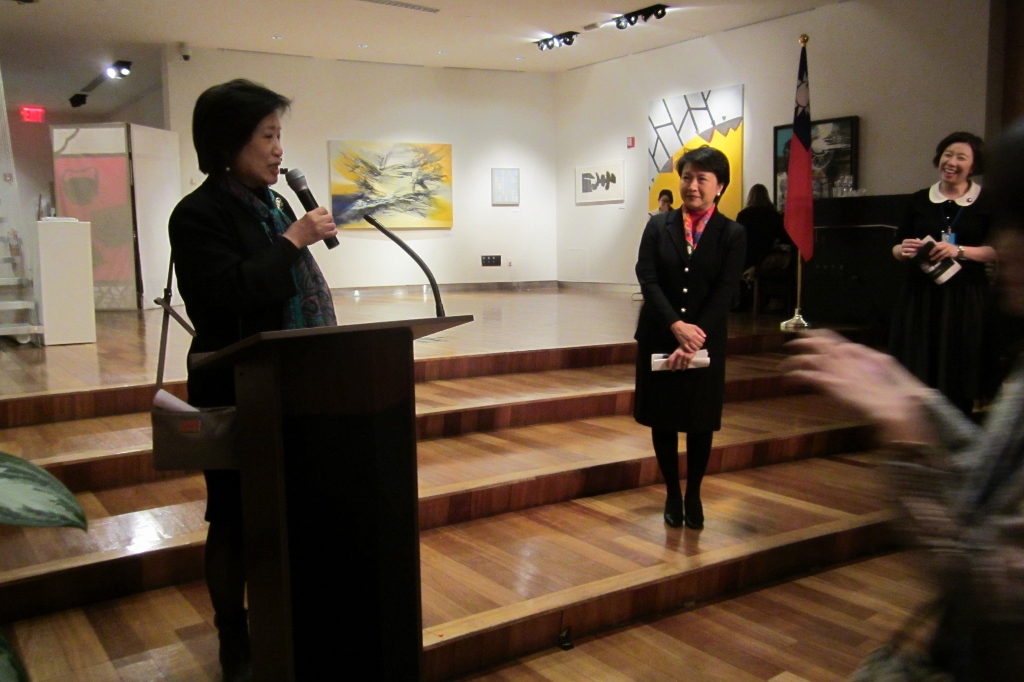
The next day the members of the Board of INLW were invited to the Taiwan building. Here our Board member Maysing Yang was one of the speakers during the evening.
[/read]
The International Network of Liberal Women, shares this part of the new publication of United Nations about the International Women’s Day:
“Recognizing the critical role and contribution of rural women”
The theme of International Women’s Day 2012 is Empower Rural Women – End Hunger and Poverty.
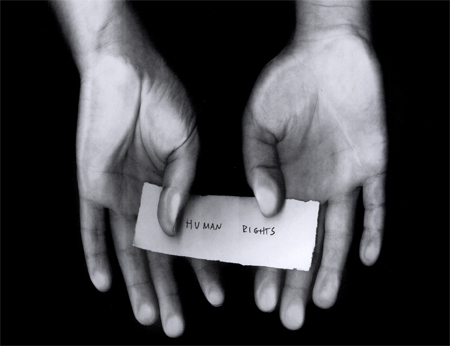
Human rights defenders acting against discrimination, often at great personal risk to both themselves and their families, are being recognized and acclaimed on this day.
Human rights defenders speak out against abuse and violations including discrimination, exclusion, oppression and violence. They advocate justice and seek to protect the victims of human rights violations. They demand accountability for perpetrators and transparency in government action. In so doing, they are often putting at risk their own safety, and that of their families.
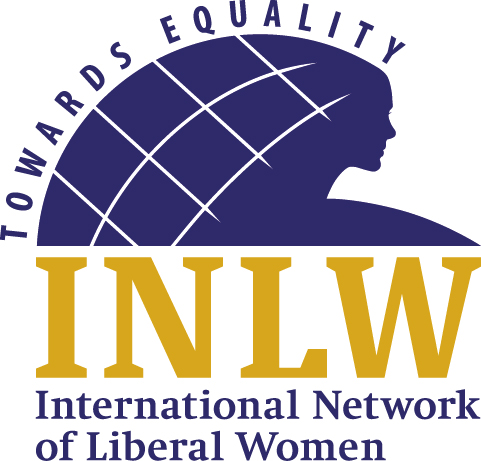
 Visit our Facebook page
Visit our Facebook page